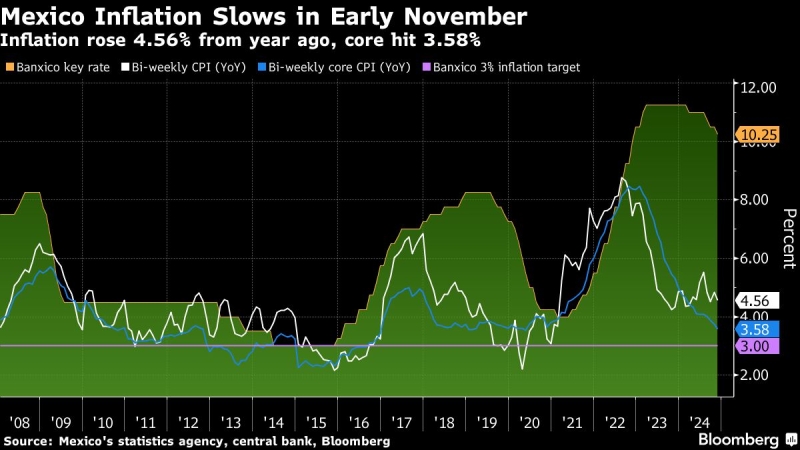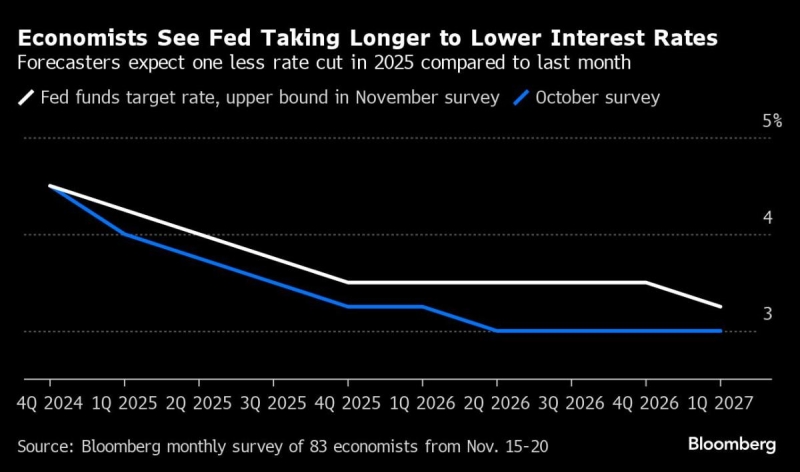
(Bloomberg) — Federal Reserve Governor Lisa Cook said she “wholeheartedly” supported the central bank’s move last week to cut interest rates by a half percentage point, citing a slowing labor market and easing inflation.
Most Read from Bloomberg
“That decision reflected growing confidence that, with an appropriate recalibration of our policy stance, the solid labor market can be maintained in a context of moderate economic growth and inflation continuing to move sustainably down to our target,” Cook said Thursday in remarks at Ohio State University.
The Fed governor didn’t say how much more easing might be needed in the near term, but would look carefully at incoming economic data and the balance of risks when considering the path of policy.
The Federal Open Market Committee lowered its benchmark rate by 50 basis points on Sept. 18 to a range of 4.75% to 5%. Forecasts released the same day showed the median projection from Fed officials called for an additional 50 basis points in cuts over the panel’s two remaining meetings this year.
Cook said the labor market coming into better balance and inflation heading back to the Fed’s 2% target reflected a welcome return from the turmoil of the pandemic. She acknowledged, however, “the normalization of the economy” may make it harder for some individuals to find employment, such as recent college graduates, those less-educated and minority workers.
Cook’s speech primarily focused on artificial intelligence and what it may mean for US workers. She said the technology has the potential to provide a “large and sustained” boost to labor productivity growth.
“If AI can improve our ability to generate new ideas, then it could provide a long-term boost to labor productivity growth, as each newly discovered idea will itself provide an incremental boost to labor productivity,” Cook said.
While the technology may eliminate jobs, she added, it may also create new ones.
“As a society, we will need to consider how to retrain and support workers who may be displaced from their jobs, even as many others benefit from AI adoption,” she said.
In a moderated discussion following her speech, she added that AI may become a “big equity issue” and called on employers to be careful when training and retraining workers whose roles are impacted by the technology.
(Updates with additional comment on AI from seventh paragraph. The day of the week was corrected in a previous version of this story.)
Most Read from Bloomberg Businessweek
©2024 Bloomberg L.P.





